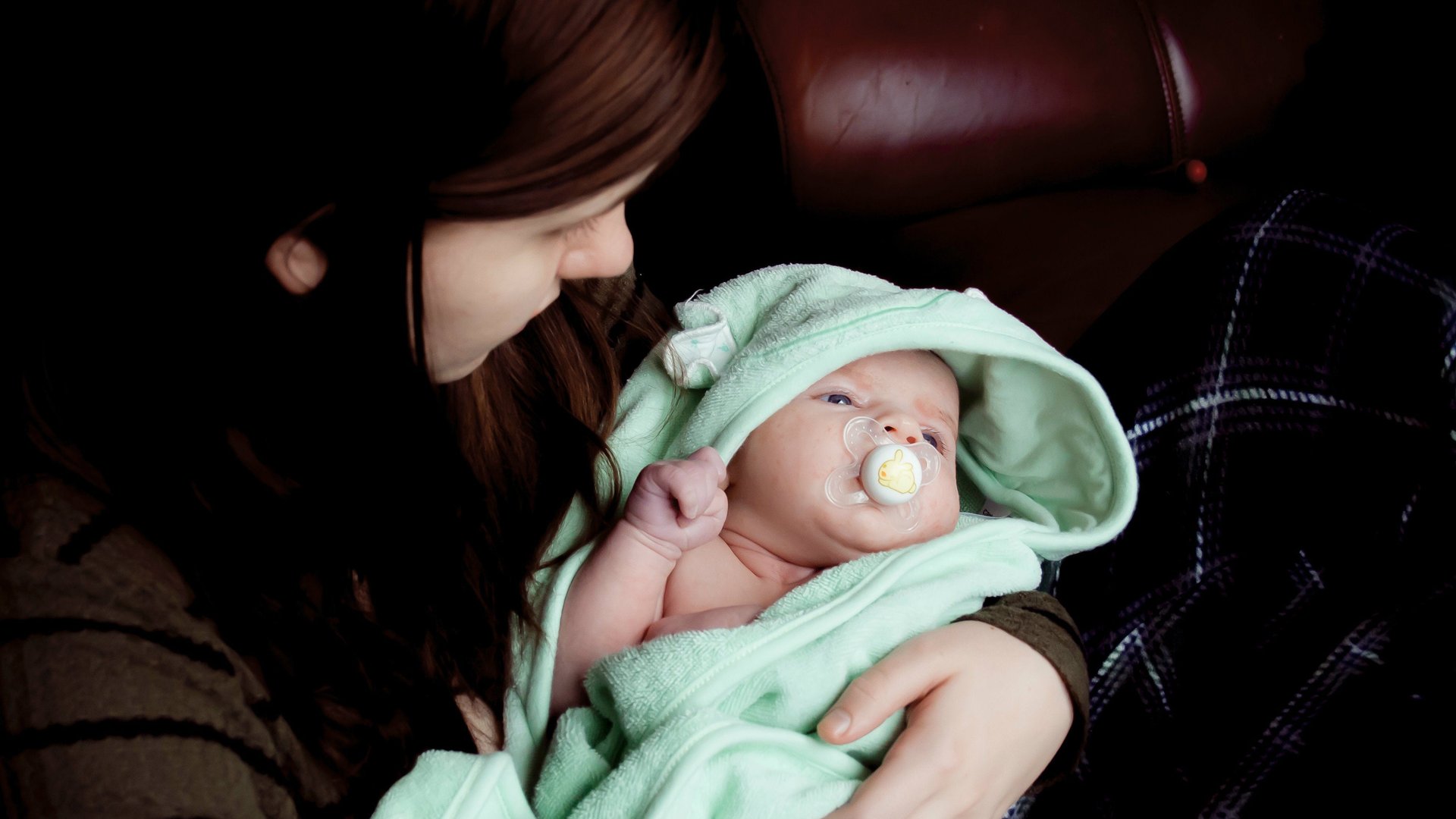What it’s like to have a baby in a country that actually cares about new moms
As any new mom can tell you, having a baby is no walk in the park. Beyond the physical toll of giving birth and the way newborns seriously mess with our need for sleep, new parents have to navigate a mental minefield. When you’re suddenly responsible for a tiny, fragile, helpless human being, everything is upended—from your relationships and career to your house and sense of time.


As any new mom can tell you, having a baby is no walk in the park. Beyond the physical toll of giving birth and the way newborns seriously mess with our need for sleep, new parents have to navigate a mental minefield. When you’re suddenly responsible for a tiny, fragile, helpless human being, everything is upended—from your relationships and career to your house and sense of time.
The Netherlands recognizes the profundity of that shift, and rises to meet it. There, after a baby is born, a kraamverzorgster, or home maternity nurse, comes to parents’ house for three to eight hours a day, for eight to 10 days after the birth. (The visits go on longer if the woman is breastfeeding, so nurses can help.) For first-time parents, the nurse can help teach the basics, from nursing and changing diapers to the epically terrifying first-time bathing of an infant (so small; so slippery).
But there’s more. Because caregivers need care themselves, the nurse also helps the moms, making sure they have food and water, that they are resting, and that there is clean laundry. If there are other children in the family, she can help care for them. She can shop for groceries and help parents navigate any land mines that pop up, from lactation problems to postpartum depression or anemia, assisting families in finding any outside services they need. This service used to be covered entirely by the government; it now costs families €4.30 ($5.31 USD) an hour, with the rest covered by health insurance.
“In the Netherlands, families are small and not that involved anymore, so kraamzorg also fills a void of informal care and support there used to be in families and communities,” says Linda Leijdekker, a Dutch pediatric nurse who specializes in child development. “But what kraamzorg adds is the experience and up-to-date knowledge of what’s best for the baby.”
There’s more to how the Dutch government supports families. A baby’s first check-up, 10-14 days after birth, and soon after the kraamzorg finishes, is a house call. Leijdekker, who makes these calls, says she can see the impact of the kraamverzorgster. ”When I first visit a family, I see how much self-efficacy parents have already developed and I know that the sound advice and the example of the kraamverzorgster has helped them,” she says. When it’s time to put the kids in care, the government’s childcare allowance, which is based on the income of the parents, helps pay for it.
One key way governments support new moms is by giving them the time off to recover from childbirth and adjust to the not-so-small task of caring for another human being. At a minimum of 16 weeks, the Netherlands offers less paid parental leave than say, Finland, with its staggering 161 weeks. But it pays women 100% of their salary during that time off.
Paid maternity leave is important not only because it results in more women working, but because it gives moms the time and financial security to focus on the skills of becoming a parent. The science of early childhood development has shown that in order to build babies’ social, emotional, and cognitive foundations, parents need to engage in basic skills like “serve and return“—basically, responding to and engaging with babies’ looks, cries, and giggles, which stimulates infants’ developing brains. For some parents, interacting with babies this way comes naturally. For others, learning serve and return takes time and coaching.
In spite of this amazing service, the Netherlands is not even ranked in the top three of places to be a mother. That honor goes to Norway, Finland and Iceland, according to Save the Children’s 2015 State of the World’s Mothers, which factors in maternal health, children’s well-being, educational status, economic status, and political status to compile its rankings.
Indeed, the Netherlands is far from perfect. Fathers get two paid days (pdf) and the option for three additional unpaid days. (Fathers are now demanding more.) Compare that to Sweden, where couples receive 480 days of parental leave per child, paid at about 80% of their salary, which mothers and fathers can divvy up as needed.
Governments have plenty of weapons in their arsenal to support new parents and their babies—from paid leave to adequate health care to parenting support programs. It’s in the best interests of all countries to do so. After all, stable parents support the development of stable kids, which leads to lifelong societal benefits including higher workforce participation and better health. Policies that support parents can also lead to big jumps in their happiness, which has long-term benefits for creating nurturing home environments. In that sense, the US has a long way to go. Research from the American Journal of Sociology shows that American parents have the highest parenting happiness gap (13%) in a group of 22 developed countries. When the researchers, led by Jennifer Glass at the University of Texas, looked at what impact policies such as paid sick and vacation leave and subsidized child care have on closing that gap, they found it was 100%.
“All parents deserve support to get through that difficult first week,” says Leijdekker. We all need kraamverzorgster—even those of us who can’t quite pronounce it properly.